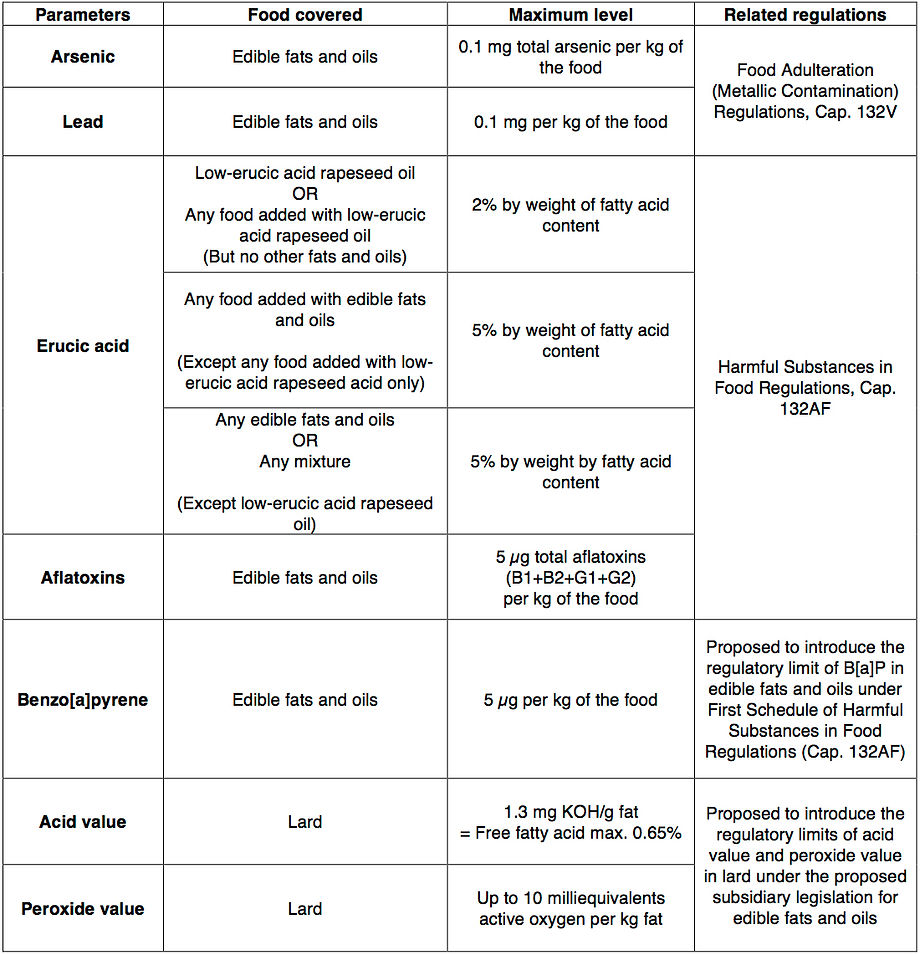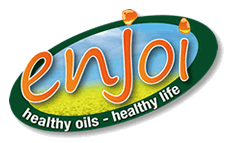
Hong Kong Legislative Proposals on Regulations of Edible Fats and Oils and Recycling of "Waste Cooking Oils" July 2015
Challenge of Testing "Gutter Oil"
“Gutter oil”, “Tainted oil” and “Substandard oil” are generic terms without scientific definition for the problem edible fats and oils. Currently , there is no universal testing standard internationally, but only by identifying harmful substances such as Benzo[a]pyrene as reference indicators. In other words, the “substandard oil” may be able to meet with individual harmful substances standards.
In 2015, Food Safety Research Center of the Hong Kong Polytechnic University published a rapid screening method using MALDI-MS to distinguish gutter oils. This method is able to identify the composition of a mixed oil, hence distinguish mislabel fats and oils within several minutes, mixing and mislabelling are the two common characteristics of "gutter oils".
While testing methods are being developed, edible fats and oils is safe guard by proper regulations, self-discipline, education and publicity.
Dr. Leung Ka Shing, Visiting Associate Professor of ABCT Dept., PolyU concluded in the public forum "Gutter Oil: Technical, Trade, Heath and Regulatory Perspectives" on 4th October, 2014 that establish traceability and control mechanism are the most important actions.
Summary of Proposed Safety Standards Amendments

Proposed Requirements for Edible Fats and Oils Industry
In the 2015 July proposal, there are also requirements for the industry including importers, exporters, suppliers, food businesses, waste cooking oil collectors and recyclers:
-
Incorporated in Food Business Regulations (Cap. 132X) as a license condition that edible fats and oils manufactured in Hong Kong (for export or domestic sale) should be accompanied by an official certificate or a certificate issued by an officially recognised independent testing institution (Laboratory able to perform relevant HKLAS tests).
-
Importers need to provide an official certificate or a certificate issued by an officially recognised independent testing institution certifying that the edible fats and oils imported into Hong Kong fulfill the statutory safety standards and being fit for human consumption.
-
Manufacturers or importers need to provide copies of certificates or other supporting documents to their downstream distributors, retailers or food premises for FEHD inspection.
-
In the Waste Disposal Ordinance (Cap. 354),
-
“Waste cooking oils” collectors must hold a waste collection license issued by Environment Protection Department (EPD).
-
“Waste cooking oils” recyclers must hold a waste disposal license issued by EPD.
-
-
Importers/Exporters of “waste cooking oils” must secure a license, and have to obtain a permit issued by EPD to cover all import or export shipments.
-
Any person, including “waste cooking oils” producers like restaurants and food factory operators, who allows or causes the “waste cooking oils” to be sold, delivered, collected or handed over to a party without “waste cooking oil” license will be subjected to fine/imprisonment.
-
FEHD impose additional licensing conditions to require all restaurants, factory canteens, food factories and bakeries to hand over their “waste cooking oils” to collectors, disposers or exporters registered by the EPD for disposal. They are also required to keep records accordingly.
-
As a registration condition, a registered collector should only hand over the “waste cooking oils” to a registered disposer or exporter, or another registered collector. All registered collectors, disposers and exporters must keep proper transaction records of collection and delivery for 12 months for inspection by the EPD.
-
Food premises are required to record the dates on which “waste cooking oils”, grease trap waste and other waste cooking oils and fats are collected from their premises, their respective quantities, and the names and addresses of the collectors and recyclers. Relevant records should be kept for at least 12 months.
Reference
2. Public Forum on Gutter Oil (地溝油) - Quality Alchemist (Dr. Lotto Lai's Blog)
3. "Tests for Gutter oil prove to be a failure" China Daily
4. "Benzo[a]pyrene and Gutter Oil" Food Safety Focus 78th issue Centre for Food Safety
5. "Scientist devise new method to identify gutter oils faster" Food Navigator




